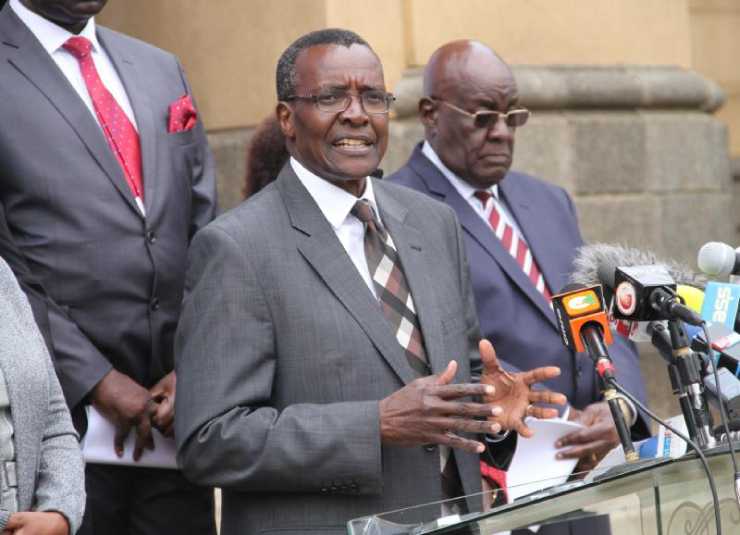×
The Standard e-Paper
Join Thousands Daily

Chief Justice David Maraga flanked by members of the Judicial Service Commission (JSC) addresses a press conference at Supreme Court on Tuesday, July 24, 2018. [David Njaaga, Standard]
Balancing budgetary allocations to meet the needs of each Government ministry and institution is not an easy task. This is the unenviable task that the National Treasury has to undertake every year.